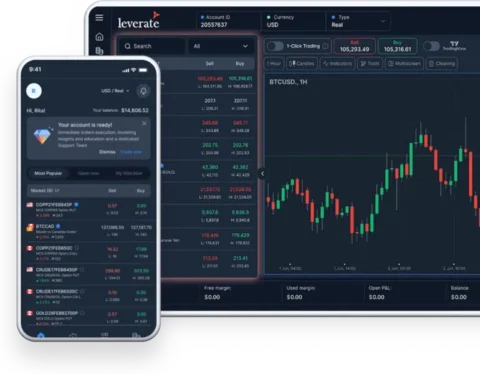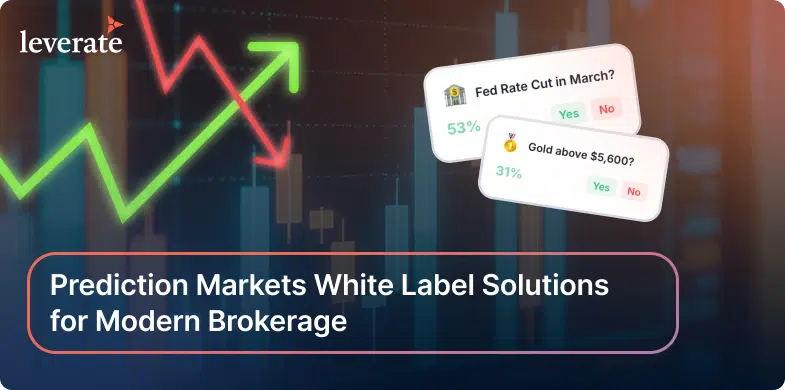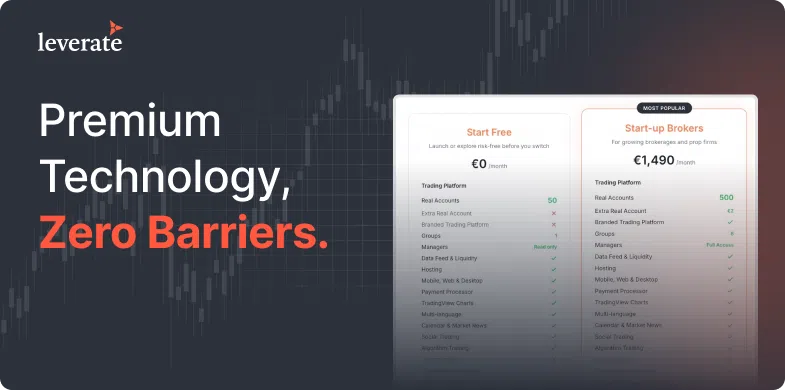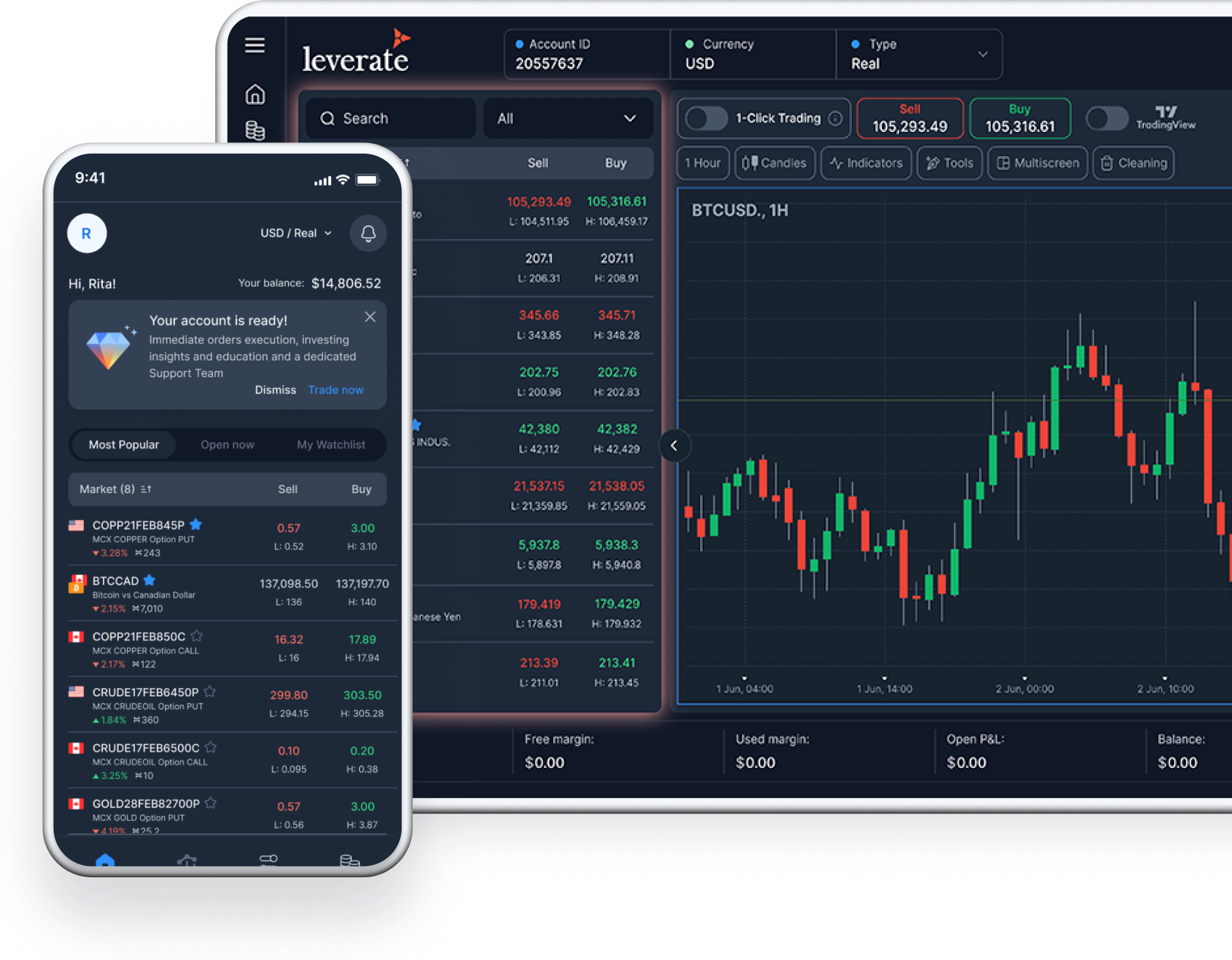
The brokerage industry is in the midst of significant transformation, driven by rapid technological advancements, evolving client expectations, and increasing regulatory demands. One of the most impactful innovations shaping the future of brokerages is the rise of white-label solutions. These turnkey platforms allow brokerages to offer comprehensive trading services without the need to develop and maintain their own technology. In this article, we will explore the key trends affecting the brokerage industry and explain how white-label solutions are becoming essential for brokerages to stay competitive and agile.
What Are White-Label Solutions in Brokerage?
In simple terms, white-label solutions allow brokerages to use a ready-made trading platform developed by a third-party provider, which can be customized and branded as their own. This approach enables firms to offer professional-grade trading services while avoiding the heavy costs and long timelines associated with building proprietary platforms from scratch.
White-label solutions typically include the full suite of tools required for a successful brokerage: trading platforms, risk management systems, CRM tools, and compliance support. Brokerages benefit from these solutions by launching their businesses quickly, scaling easily, and focusing on their core activities like customer acquisition and retention, while the technology provider handles the complexities behind the scenes.
Emerging Trends in the Brokerage Industry
The brokerage landscape has seen several significant changes in recent years, which have fueled the growing importance of white-label solutions. Below are some of the major trends that are reshaping the industry.
The Demand for Multi-Asset Trading
Today’s traders are no longer content with focusing on just one asset class like forex or stocks. There is increasing demand for multi-asset trading, where clients seek access to a broader range of financial markets, including cryptocurrencies, commodities, and CFDs. As a result, brokerages must now provide trading platforms that cater to this desire for diversification.
Building a multi-asset platform from the ground up is both costly and time-consuming. This is where white-label solutions come in, allowing brokerages to offer access to various asset classes through an already-developed, integrated system. Leverate, a leading technology provider, is well-positioned in this space, offering a white-label platform that enables brokerages to meet client demand for diverse trading options while minimizing the operational burden.
The Rise of Automation and AI in Trading
Another major trend shaping the brokerage industry is the increasing use of automation and artificial intelligence (AI). Automated trading tools and AI-powered analytics are transforming the way traders interact with the markets. Many investors now expect platforms that offer advanced features such as algorithmic trading, real-time data analytics, and AI-driven insights that can help them make more informed decisions.
White-label solutions have quickly adopted these cutting-edge technologies. Providers like Leverate offer platforms equipped with AI-driven features, enabling brokerages to offer advanced trading tools without having to invest heavily in their development. This helps brokerages remain competitive by offering state-of-the-art services that meet the evolving demands of their clients.
Personalized Trading Experiences
As competition grows in the brokerage space, firms need to differentiate themselves by offering personalized experiences to their clients. Today’s traders expect platforms that are tailored to their unique needs, preferences, and goals. Personalization has become a crucial way for brokerages to build stronger relationships with their clients and increase customer loyalty.
White-label solutions make it easier for brokerages to offer this level of customization. Providers like Leverate enable brokerages to tailor their platforms by adjusting the user interface, integrating specific tools, and providing a trading experience that reflects the brand’s identity. This flexibility allows brokerages to stand out in a crowded market while ensuring that their clients feel valued and engaged.
Navigating Complex Regulations
The regulatory environment in the brokerage industry is becoming increasingly complex, with each region imposing its own set of rules and compliance requirements. For smaller or newly established brokerages, staying on top of these regulations can be particularly challenging. Non-compliance can result in fines or legal actions, which makes it a crucial aspect of running a brokerage.
White-label platforms offer a solution by incorporating built-in compliance tools that help brokerages navigate these regulatory challenges with ease. Leverate’s white-label solutions include essential features tailored to meet regulatory requirements, from automated reporting and a seamless KYC process to advanced AML checks and risk management. This comprehensive compliance framework allows brokerages to focus on growing their business, confident that regulatory obligations are consistently met and under control.
The Move Toward Mobile and Cloud-Based Trading
The rise of mobile technology has fundamentally changed the way traders interact with the markets. Today’s traders demand mobile-friendly platforms that allow them to trade on the go, whether through their smartphones or tablets. This trend is coupled with the growing adoption of cloud-based solutions, which offer better flexibility, security, and performance than traditional on-premise systems.
White-label solutions are well-suited to meet these demands. Providers like Leverate offer platforms that are fully optimized for mobile trading, ensuring that clients can access the markets from anywhere, at any time. Additionally, cloud-based infrastructure ensures that brokerages benefit from reliable performance and security, all while minimizing IT costs.
Why White-Label Solutions Are Vital for Brokerages Today
First, cost-efficiency is a major advantage. Developing a trading platform from scratch is an expensive and time-consuming endeavor, particularly for smaller brokerages or those entering the market for the first time. white-label solutions allow these firms to access top-tier technology at a fraction of the cost, enabling them to compete with larger, established players.
Second, speed to market is crucial in today’s fast-paced financial environment. white-label solutions allow brokerages to launch their services quickly, avoiding the delays that come with custom platform development. Leverate’s platform, for example, allows brokerages to be fully operational in just a matter of days, giving them a significant head start.
Additionally, scalability is essential as brokerages grow. white-label platforms are designed to scale with a business, whether it’s adding new markets, asset classes, or features. Leverate’s solution is highly flexible, allowing brokerages to expand their offering without any disruption to their service.
Compliance is another critical factor. With regulations constantly changing, brokerages must ensure that they stay compliant to avoid penalties. Leverate’s white-label solutions include up-to-date compliance tools that automatically adjust to new regulatory requirements per demand, making it easier for brokerages to operate across multiple regions.
Lastly, white-label solutions provide access to cutting-edge technology. Leverate’s platform includes advanced features like AI, automated trading, and risk management tools, which help brokerages stay competitive in an increasingly sophisticated market. By using white-label technology, firms can offer their clients the best possible trading experience without the need for costly, in-house development.
The brokerage industry is undergoing significant change, and brokerages need to adapt to new trends like multi-asset trading, AI integration, mobile trading, and complex regulatory environments. white-label solutions offer a reliable, efficient, and scalable way for brokerages to meet these challenges while focusing on their core business. By partnering with a leading technology provider like Leverate, brokerages can gain access to state-of-the-art platforms, personalized experiences, all at a fraction of the cost of developing their own systems.
For brokerages looking to thrive in the fast-evolving financial landscape, white-label solutions are the key to staying competitive, agile, and ready for the future.



















